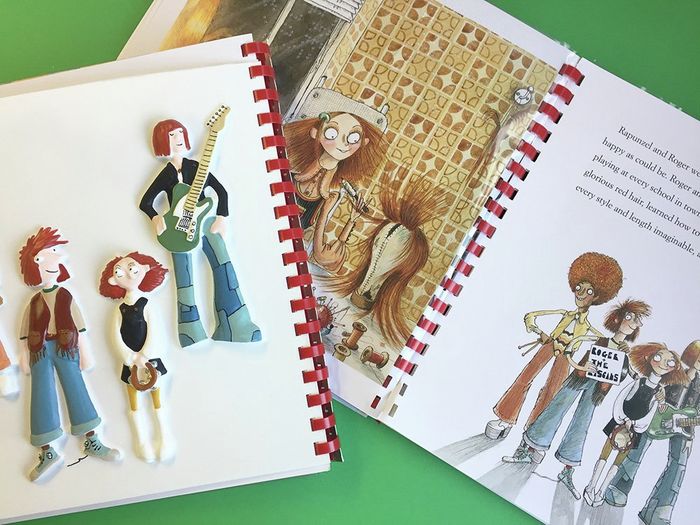Finding community through creativity
Wrapping up National Storytelling Week, Amelia Platt reflects on memories of her creative writing club at school

My high school’s Creative Writing club met at lunchtime every Tuesday, 12:50 till 1.20 pm. Seven of us would bundle into the empty English classroom, lunch in hand, ready to discuss and write stories. If not for the club we might very easily have walked past each other in the corridor without a second glance - we differed in age, personality, and experiences. What we shared was a love for storytelling.
Lunchtimes in our classroom were inhabited by a strange mix of developing stories. In the corner, a horror reaching its gruesome climax; by the door, two lovers attempting to reconcile; in the centre of the room, a boy realising he’s trapped in a video game. Then, ten minutes before lunchtime ended, in what was my favourite part, we would gather around a wobbly desk and share our stories. There was always that fear just before I opened my mouth, knowing that some part of me was about to be exposed. But it was always okay in the end, the comments encouraging and constructive. We all recognised the fears involved in sharing, and we supported each other. Having the space in which I could comfortably share my work and gain feedback - while never feeling pressured - was incredibly empowering. Sometimes we would abandon our writing and simply spend the afternoon chatting, enjoying each other’s company.
“For those precious thirty minutes, we had complete agency”
We did not attend the club meetings for academic reasons, or because we all dreamed of being famous authors. For those precious thirty minutes, we had complete agency. We got to bring our ideas to the page. In so many of our other lessons, we had no such freedom. There was only one way to write an essay correctly – only one way to maximise your marks. Creative writing offered us the chance to experiment, to play and to create something that was wholly, undeniably ours. We were in control - deciding exactly how our plot points would play out, what our characters would wear and where the stories would take place. It seemed as though in every lesson we were being assigned grades, numbers that quickly came to determine how we saw ourselves and each other. In our creative writing group, although we gave each other constructive feedback, our writing was never graded, and therefore was untouched by a system so many of us were struggling with. Unlike in many of our lessons, we weren’t being encouraged to work for an extrinsic reward. We wrote for ourselves because we wanted and needed to.
I’ve always loved stories and storytelling. Central to this love is a sense of exploration. You never finish reading or writing a story in the same place as you began. I’m now at university working on an English degree, a decision prompted by my love of stories. But the truth is that I now write much less than I once did. On a busy day, creative writing seems more expendable than the other tasks on my to-do list. The wacky stories I wrote in school have been replaced by essays, emails, and to-do lists. Perhaps this shift is indicative of a wider societal and educational attitude towards the creative arts and in particular, creative writing.
The scrapping of the Creative Writing A-Level in 2016 revealed a dismissive attitude among those in government towards creative writing and its value. This attitude has filtered down into lower levels of education. I was lucky enough to have a wonderful English teacher during secondary school who championed creative writing. Even in Year 11, she ensured that we were given time to write creatively. But for so many, this is not the experience. We need to recognise the very real benefits of creative writing, especially for young people. Writing fosters imagination, self-expression, and communicative skills, to name but a few. Within the classroom, it can act as a useful counter to the stresses of the education system. And perhaps most importantly, by valuing creative writing you give individuals the chance to express their own voices, recognising the value their stories hold.
Ultimately, the truth is that I miss my creative writing club and my fellow members hugely - I miss the space we carved out for ourselves. I miss those thirty minutes where it didn’t matter that I had only written two sentences, that I had a test next period, or that the plotline of my story made absolutely no sense. What mattered was that I had written something that was my own and that I was among people who understood how important that was.
 News / Cambridge academics stand out in King’s 2026 Honours List2 January 2026
News / Cambridge academics stand out in King’s 2026 Honours List2 January 2026 Interviews / You don’t need to peak at Cambridge, says Robin Harding31 December 2025
Interviews / You don’t need to peak at Cambridge, says Robin Harding31 December 2025 Comment / What happened to men at Cambridge?31 December 2025
Comment / What happened to men at Cambridge?31 December 2025 Features / “It’s a momentary expression of rage”: reforming democracy from Cambridge4 January 2026
Features / “It’s a momentary expression of rage”: reforming democracy from Cambridge4 January 2026 News / Varsity’s biggest stories of 202531 December 2025
News / Varsity’s biggest stories of 202531 December 2025










